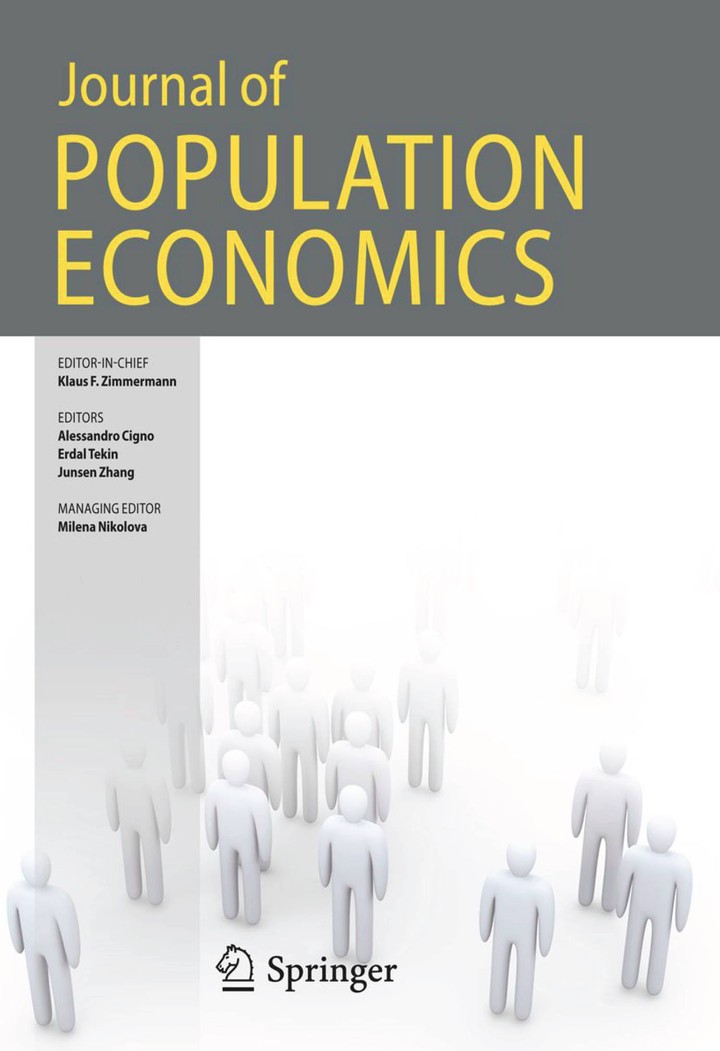异质社会中的文化同化与隔离
IF 3
2区 经济学
引用次数: 0
摘要
我提出了一个具有内生社会网络和特异同化模式的文化同化模型,该模型与欧洲的经验证据相一致。该模型表明,在多元化或文化异质性较强的社会中,同化程度较弱,而在社会密度较高的社会中,同化程度较强,但同化程度不受少数群体比例的影响。少数群体的社会隔离会随着社会密度、少数群体所占比例以及多数群体与少数群体之间初始平均文化距离的增加而增加。本文章由计算机程序翻译,如有差异,请以英文原文为准。

Cultural assimilation and segregation in heterogeneous societies
I propose a model of cultural assimilation with endogenous social networks and idiosyncratic assimilation patterns that is consistent with the empirical evidence for Europe. The model implies that assimilation is weaker in pluralistic or more culturally heterogeneous societies, and stronger in socially denser societies, but it is not influenced by the minority share. Social segregation for the minority increases with social density, with the minority share, and with the initial average cultural distance between the majority and the minority.
求助全文
通过发布文献求助,成功后即可免费获取论文全文。
去求助
来源期刊

Journal of Population Economics
Multiple-
CiteScore
9.60
自引率
6.60%
发文量
50
期刊介绍:
The Journal of Population Economics is an international quarterly that publishes original theoretical and applied research in all areas of population economics.
Micro-level topics examine individual, household or family behavior, including household formation, marriage, divorce, fertility choices, education, labor supply, migration, health, risky behavior and aging. Macro-level investigations may address such issues as economic growth with exogenous or endogenous population evolution, population policy, savings and pensions, social security, housing, and health care.
The journal also features research into economic approaches to human biology, the relationship between population dynamics and public choice, and the impact of population on the distribution of income and wealth. Lastly, readers will find papers dealing with policy issues and development problems that are relevant to population issues.The journal is published in collaboration with POP at UNU-MERIT, the Global Labor Organization (GLO) and the European Society for Population Economics (ESPE).Officially cited as: J Popul Econ Factor (RePEc): 13.576 (July 2018) Rank 69 of 2102 journals listed in RePEc
 求助内容:
求助内容: 应助结果提醒方式:
应助结果提醒方式:


